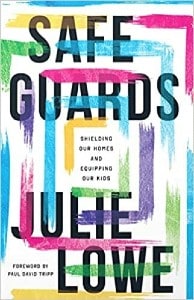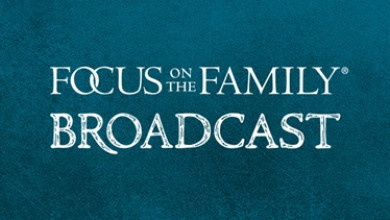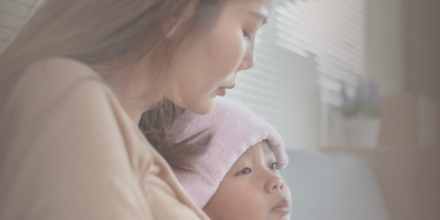
The War of Words
In this Adventures in Odyssey drama, a carelessly uttered word from Eugene creates havoc as it becomes the fashionable insult, resulting in a lesson about the power of words.
Home » Episodes » Focus on the Family Broadcast » Protecting Your Kids From Worldly Dangers (Part 2 of 2)
Preview:
Julie Lowe: No matter what age your children are at, it’s never too late to start talking to them and encouraging them and having these kind of conversations. And we don’t wanna live in fear. I will not help my children, I’ll raise fearful kids if I respond in fear. Or I can raise competent, equipped kids if I am just factual, casual. I have a conversation just like you and I are having. I’m not eliciting fear, I’m… I’m making it sound like no topic’s off limits. We can talk about anything. And mom and dad expect these things to happen, and we want you to know what to do.
End of Preview
John Fuller: JWell, Julie Lowe is our guest again today on Focus on the Family. Thanks for joining us. Your host is Focus president and author Jim Daly, and I’m John Fuller.
Jim Daly: John, I was really impressed with what Julie had to share yesterday, and I’m looking forward to what we’re gonna learn today. I said at the end of the program, you know, these are the tid-bits I wish I would have had when the kids were younger. And that’s why we’re doing this, so we can give you these great insights as you’re parenting your children, pass it along to your friends and make sure that everybody, uh, in your schools or wherever this great resource. Safeguard shielding our homes and equipping our kids, which is really the key, is how to equip our kids to live in a world that will come after them and try to tear them down.
John: Yeah. Yeah, this is a really important conversation for every mom and dad. It’s never too late, and Julie Lowe is eminently qualified to share from her heart and her expertise. She’s a licensed professional counselor and a faculty member at Christian Counseling and Educational Foundation. She has a number of books, and the one that forms the foundation of our conversation today and was part of the conversation last time as well is called Safeguards: Shielding our Homes and Equipping our Kids. And uh, we’ve got details about Julie and her work and this book at our website, uh, that’s focusonthefamily.com/broadcast.
Jim: All right, Julie, welcome back.
Julie: Thank you.
Jim: Uh, Before we get into today’s specifics, let’s take a minute and recap. Uh, for example, what do you mean by safeguards? Let’s start there.
Julie: Yeah, safeguards I- is meaning I’m putting up protective measures to, uh, help my kids, to protect them. I can’t keep them from every danger in the world, nor should I. Um, that’s when we try to control our children. But I can put up safeguards to help them, to shield them from some of the darts that will be thrown their way while also equipping them to know how to protect themselves.
Jim: Uh, probably one of the scariest things for a parent is the potential that someone might abuse my child in some way. Uh, but the reality is it does happen.
Julie: Mm-hmm.
Jim: Um, and it’s maybe not likely, but there’s always the potential of that. Um, what can we teach our children age-appropriately to help prevent that from happening?
Julie: Yeah-
Jim: That’s a big question.
Julie: It is. And we, we often wait till like kids are preteens instead of starting even when they’re young teaching appropriate names of body parts and saying nobody should touch you in your private parts, nor should you touch anybody else. We’re having those kind of conversations that aren’t, um, that aren’t taking away our children’s innocence. It’s actually equipping them and making things age appropriate. And as they get older we’re giving examples of bathing and babysitters and should a babysitter help you in the restroom. Things like this that as they get older it transfers to bigger things like peer groups and dating and consent and all these, the language that we use for older kids, um, that if we’re teaching them when they’re young, if somebody makes you uncomfortable, we always want to hear it. So not using the word inappropriate, ’cause that’s hard for kids to know what’s appropriate or inappropriate.
Jim: So gray.
Julie: Gray area, grooming. Grooming, uh, things are very hard for kids to discern. But if I say, “If someone’s making you uncomfortable, mom and dad always want to hear. Go tell another adult and we’ll help you figure it out.”
Jim: Okay.
Julie: Then we’re always teaching them to pay attention.
Jim: Yeah.
Julie: We’re teaching them. So the language I’m using is not scary language, it’s not alarmist mentality.
Jim: Not explicit.
Julie: Yeah.
Jim: Yeah.
Julie: But it’s very much, learn to pay attention to what people are doing.
Jim: You know what I like about that? That idea of just being uncomfortable. I think people of all ages understand that.
Julie: Yeah.
Jim: You know when you’re uncomfortable.
Julie: Yeah.
Jim: I mean, that’s fair. One of the things you pointed out yesterday that I want to resurface uh for a moment is this idea that most harm in a child’s life will come from somebody known to them.
Julie: Right.
Jim: Not a stranger.
Julie: Right.
Jim: And we hit that stranger danger myth.
Julie: Right.
Jim: It is true. Some strangers are evil people doing evil things. You need to be aware of that.
Julie: Right.
Jim: But most likely, and I think the numbers something like 90% of the time, it’s someone known by the child that may harm them.
Julie: Yeah.
Jim: So, that makes it even more difficult for a child to understand boundaries.
Julie: Right. So you can see why discernment, uh, and discerning and evaluating, uh, words and actions are more important than character. ’cause the people we know are likely to be people that could harm us that I want to discern what they’re telling me to say or do, uh, or what they’re saying or doing. And if you give kids that freedom to do that, you raise kids that are very thoughtful.
Jim: Now sleepovers, huge category.
Julie: Yeah.
Jim: I was talking to Jean yesterday about this knowing that we were going to talk today. Just, ’cause, w- we kind of, we’re pretty tough on sleepovers. It didn’t happen until mid-teenage years, like 14, 15, when we knew the kids could defend themselves and protect themselves. And we knew the families well, and we didn’t have much concern.
Julie: Yup.
Jim: ‘Cause the environment we felt would be reasonably safe, et cetera. Not that anything’s fool proof. I get that.
Julie: Right.
Jim: But, speak to the sleepover philosophy I guess, if we could call it that, in today’s world that I think leans a little more dangerously than it used to be with all the input that we have.
Julie: Yeah. That’s so hard ’cause man, people have strong opinions about sleepovers.
Jim: I- I-, yeah.
Julie: Either very pro sleepover or very negative, you should never have it, you should never have it in your house. And maybe better with a counselor, but we also, we were foster parents, we have an open home, kind of ministry attitude that we were having people over. Um, and I didn’t want to squelch that. How do you talk about not having sleepovers…
Jim: Yeah.
Julie: Which we shied away from them with our kids for sure, for safety reasons. So I think you call fall anywhere on the spectrum. But the important thing is to know is there are very few benefits of sleepovers today. And there are a whole lot of potential negatives.
Jim: Huh.
Julie: So even the electronics. No matter how wonderful another family is, kids have access to electronics in the middle of the night. Usually nothing good is happening in the middle of the night with electronics. Only negative things. And if even I trust this family, their, their older brother can have a friend who’s over with a cell phone, and all kinds of stuff happening. And so I think it’s a wisdom issue. I would never judge a parent where they fall on this category, but I would say there’s a whole lotta red flags to why I would do it today.
Jim: Hmm. I could remember the, it’s so funny, ’cause one of our sons, we’re talking about being out after midnight. I said, “Well, nothing good happens after midnight.”
Julie: Happens after midnight.
Jim: And he said to me, “Do you have empirical data that supports that?”
Julie: (laughs)
John: (laughs)
Jim: (laughs) I mean, I remember going, you little smart aleck.
John: (laughs)
Julie: (laughs)
Jim: Not at my fingertips.
Julie: (laughs)
Jim: But, that’s where his head was at. Really, ’cause, you know, I’m not sure if that’s true, Dad.
Julie: (laughs)
Jim: It’s pretty funny. But it’s generally true. Later the night, the, the more mistakes can be made.
John: And Julie, how do you guide a parent to kind of hold that principle? If they say, I’m not gonna have sleepovers for my kids, we’re not gonna do that.
Julie: Mm-hmm.
John: Um, it sounds kind of prudish, maybe it’s counter cultural. How do they stand up for their conviction without sounding judgmental?
Julie: Yeah, well I, I mean, I talk a good talk, but that was always painful for me to tell another parent, “I’m sorry, we don’t do sleepovers.” And then if they asked why, then I felt a little more uncomfortable. Like, well I don’t want to sound like a, yeah, a prude or, or somebody who’s holier than thou. And so I found it hard and I, I teach on these things. And so I would, I would just approach it apologetically. You know, I just, I hear too much, we’re just leaning this direction. And so I always talked that way so it sounded humble, it was humble. I, everybody’s different. Um, and I would say, “Listen, we’ll, we’ll pick our son up from the party at 10 or at 11. Um, so they can come to the birthday party, they just can’t spend the night. And there’s been few exceptions. And here’s where you know, we go away traveling. Where are the kids gonna stay? Or somebody spends the night at our house. Things like that where I’m always measuring, all right, how much certainty can I give that this is a safe situation? And that’s where I think wisdom keeps coming in and discernment keeps coming in that we can come up with hard and fast rules, like stranger danger, like never do this, never do that. But then we’re not equipping our kids to evaluate. And I just think that’s not helpful.
Jim: Yeah, it’s so true. Touching on another subject that, you know, I think for us certainly as older parents, in my case, um, I wasn’t aware of, of this issue of sexting.
Julie: Hmm.
Jim: With technology and smart phones and all that. Um, not that my head was in the sand, but I thought, eh, who would do that? But it happens. And it’s becoming more pervasive. I think as a counselor, you’re saying that.
Julie: Yes.
Jim: And that’s why you addressed it in the book.
Julie: Yeah.
Jim: Speak to eh- eh- how frequent this is and what heads up you would give to parents.
Julie: It i-, yeah, I wish I had some statistics in my head, but it’s way too frequent. And a matter of fact, even in the area I’ve lived, I’ve talked with detectives who say regularly, they’re going out to the high school with these issues. And in most states, the laws have, the laws are different. But if a teenager, if a teenage girl sends a naked picture to a boyfriend, and that boy then passes it on to 20 other people, which happens regularly, um, then all those people are having child pornography on their phones now. And they can be arrested. They can be held accountable for that. And so even having these hard conversations with my sons, that say, guys, if a girl or somebody ever sends you a picture like this, delete it immediately. It’s, it’s illegal, it’s wrong. The consequences are great. So just very practical advice to say, you think your son or daughter will never be in these situations, but even inadvertently, things could be sent to them. So maybe they didn’t contribute to it, but now they’re in the middle of it. If you don’t talk and have these current conversations with our kids, they’re ill equipped to know what to do and it could get them in trouble.
Jim: Well, and I think your referencing the way to have that conversation. But let’s be specific. I mean, y- y- you kind of said it there, you know. It’s unwise to do this. Not only that, it’s illegal.
Julie: Right.
Jim: You could be tagged with uh, sexual abuser label.
Julie: Yeah.
Jim: If, you know, number one, it’s not good to do period.
Julie: Right.
Jim: Because of what we believe as a family, and hopefully you believe these things that we believe.
Julie: Right.
Jim: But, you know, beyond that behavior now, we’re not talking about you as a person and how much God cares for you, but the behavior if you’re doing it.
Julie: Yeah.
Jim: This is what it could lead to.
Julie: Yeah.
Jim: Behavior has consequences. Does that sound like the right framework?
Julie: Yeah, I mean, I’m assuming my, my boys would never do that. But, you know, they’re sinners, they struggle, they have temptations. And to be able to approach their own hearts in this. But then also to be aware, sometimes they will feel like they’re innocent because things will get handed off to them or their friends are pulling out their phones and showing them things. Um, and so just teaching them the importance of guarding your own heart from, from evil. But also knowing that there’s ramifications out there that you haven’t even considered yet.
Jim: Yeah. Cyber bulling is another common thing. Again, I didn’t experience that with my boys. They never really lifted anything up to me. I would ask them about it. Not to where it became a problem, you know. And, and maybe that’s part of this question too. How can you overdo it as a parent? Every day saying, did anybody cyber bully you, did anybody, you know? ‘Cause that can put fear into your kids.
Julie: Yeah.
Jim: Like, they’ll be now on the lookout for everything.
Julie: Yeah.
Jim: But, you know, probably once every three to four weeks I might have just said, Is everything good with your, uh, friendships, your, your phone, an, an anybody picking on ya?
Julie: Yeah.
Jim: Something like that. Just what I would call a check-in.
Julie: Mm-hmm.
Jim: Speak to that really quick. Is that something that’s wise, or?
Julie: Yeah. That’s wonderful and I’ve learned that though my kids may be hesitant to share what’s going on, uh, in their own world, they’re really free to share what’s going on in their peer group. So I’ll often start with, “So tell me what 10th graders are talking about these days? What kind of trouble are 10th grade boys getting into?”
John: And boom, you get it.
Julie: Boom, I get everything everybody’s doing. And so I’m like, hmm, this is what you’re being exposed to. And then I’ll say, “Well, what do you think about that?” There I am putting it in their lap. Then I’m thinking, well, what w- would you do if you were in that situation? And if I have a good enough relationship, they might even say, “Well Mom, I was in that situation.
John: Hmm.
Julie: Or, well, someone did do something like that. But if we never ask the questions. And so, there’s a wisdom in how you ask it, right? A creativity and say, let me ask about your peer group, ’cause your more likely to share about them. But then I move closer and closer to them.
Jim: Right, in fact your daughter Brittany had a brush with something like this. How- How did she manage it. And how did you manage it with her?
Julie: Yeah. My daughter Brittany’s a young adult. She works at a local daycare and took a break and went to a coffee shop. Was sitting outside her car reading, taking a break. Middle of the day, probably, I don’t know, three o’clock in the afternoon, sunny, busy area. And as she was pulling her car out of her parking spot, an elderly gentleman, probably her grandfather’s age walked towards her. And so she assumed maybe she had a uh, flat tire or something like that. And so she, she rolled the window down and he said something to the affect, um, I’ve been watching you for 20 minutes. I- I like the way you look, and threw something in her lap. And she thought that was weird and she starts rolling up her window. And as she drove away she looked down and there was a 50 dollar bill in her lap.
Jim: Hmm.
Julie: Now, there’s no way I could have predicted that kind of situation. And out of all the what if’s scenarios, I never would have thought to say, “Brittany, if this happens”, um, but, if you as a parent are walking through how to evaluate, the irony is, as the day went on, she got more and more upset about it.
Jim: Hmm.
Julie: Because the realization of what, how uncomfortable and inappropriate that was-
Jim: Right.
Julie: Kept hitting in and sinking in even deeper and deeper. And it became this, this great teaching opportunity that, see hunny, these things can happen. And they can happen in broad daylight.
Jim: Yeah.
Julie: Now, what would you do next time? Is there, what have you learned? What would you do differently? Not that you did anything wrong, matter of fact, you did everything right in one respect. But now you’re aware. And so it makes for great conversation to help her think through, if somebody made me uncomfortable like that again, would I get out of the car and go call a police officer. What would I have done?
Jim: Yeah.
John: Mm-hmm. This is Focus on the Family with Jim Daly. I’m John Fuller. And thanks for joining us today. We have Julie Lowe in the studio with us. And she’s written a book right along with this topic. It’s called Safeguards: Shielding our Homes and Equipping our Kids. And you can find out more about the book. Get your copy from us here at Focus on the Family. Our numbers 800, The letter A and the word FAMILY. Or stop by focusonthefamily.com/broadcast.
Jim: You know, another item beyond the bullying and sexting, the things we’ve talked about is just, just social media generally. Um, we were really successful in delaying smart phones with our boys. And somebody had given us great advice sitting at this table that I used. Which was, delay it as long as you can.
Julie: Yeah.
Jim: Just that simple. And so I remember early on, you know, they’re probably 12, 13. Dad, everybody has phones but me. You know, that kind of thing. And I t-, oh you know, let me talk to your mom about that. (laughs) I just let it go.
Julie: (laughs)
Jim: Maybe not wise, I wasn’t lying. But I…
Julie: You deflected.
Jim: I hadn’t talked to her yet. So six months would go by or a year, and they’d say, You know, did you ever talk to mom about the phone? And you know, I forgot but let me, let me get back into that. Another three months would go by. But we ended up, I think our oldest was 17 and started to drive and that’s why, you know, having a phone that could manage location was important. And then Troy of course got in a little better as the little brother. So he got his device at 15, you know. But, but that’s one of the things that I learned, just delay it as long as you can. And don’t buy into the, everybody’s got it but me routine. And, you know what, maybe just say directly, “We’ll talk about that another year from now, but I’m not sure when.” I’m not making that commitment.
Julie: Mm-hmm.
Jim: But we’ll talk about it next year. That’s not a bad way to delay.
Julie: No. I find it really unhelpful when parents say, what age should we give them a cell phone? Where it’s really, it really is, why would you give them a cell phone? That’s the question first. And then the next is, um, do they have maturity, responsibility? Do they know how to be a good stewardship of their resources? It’s stewardship and accountability issue. We tell our kids, we, we don’t do what’s fair. We do what’s right and good for each of you. Um, and that’s what’s important that we’re keeping you safe.
Jim: Yeah. You know, one of the things too Julie is we, I think as a culture, we’ve kind of lost uh, this idea that, your brains not fully formed.
Julie: Right.
Jim: You know, that’s why we have ages set aside. Like 18, they get to vote.
Julie: Mm-hmm.
Jim: Which might be a little early, but… (laughs)
Julie: (laughs)
Jim: You know, but it’s a reasonable time for you to take that responsibility on. You can become informed. You know what the government should do, what you think it should do. And you can vote. You can’t drink in most states, not all, but 21 for the same reason. So we delay certain ability for them to make certain decisions. Yet in some of these areas that are so extremely harmful, we just look the other way. 13, 14, 15, when they’re not capable of pushing back. They’re not of discerning these things. We kind of leave them out there on a limb.
Julie: Yeah. Because everybody’s doing it. And that’s the reason we do it.
Jim: Yeah.
John: It seems almost counter intuitive but we’re training them actually to do what you’re talking about Jim. We’re, we’re giving kids even in strollers devices, right? I mean, we’re setting them up to understand, this is a normal part of life. And you’re just going to be interacting with screens. And to some degree there is truth in that.
Jim: Yeah.
Julie: Right.
Jim: But how do we, how do we stop even introducing phones to kids as entertainment and babysitting devices?
Julie: Yeah, well there’s tons of research on how it even effects kids developmentally. That kids are now being entertained versus learning to do puzzles and things like that. And we’re just not counting the cost of, of giving our kids technology to soon. We don’t want to demonize technology but we want to understand with it comes a world of good and evil.
Jim: Yeah. That, that’s really good. I, again I applaud Jean because she did it. You know, I think in some ways. That discernment that you talked about last time. She just did not like television or screen time. So, it was in the basement with a lot of LEGO’s and building crafts and you know, what are those old metal things you used to build?
John: Erector sets?
Jim: Erector sets. I mean, they had erector sets. We had mouse trap kind of things for the marbles. And I think the boys now being older, they look back on that and say, I’m so glad mom did that for us, you know. Kind of forced us to use our imagination.
Julie: Exactly.
Jim: And don’t worry about the, I’m bored thing. Hey, boredom has a certain element of, of teaching to it. That it’s okay. They don’t have to be stimulated all the time.
Julie: Yeah. We go to restaurants and we have a no phones out during mealtimes, including us. They hold us accountable too. So no phones out. But we can go to restaurants…
Jim: I hate it when they do that. (laughs)
Julie: But they hold you accountable. And we’ll point out, we’ll say, guys try to find a table in this restaurant where somebody isn’t on their device and what do you guys think about that? And they’re like, yeah, we’re the abnormal one’s mom. You’re right. And you’re going to be much more mature adults as a result of it. And you can have conversations with us and enjoy it.
Jim: It’s so true, it’s so true. I hope that point gets across to everybody. Speak to us about, you’re a counselor, you’re seeing families all the time. You’re teaching the mental health crisis in America with particularly teenagers, particularly with depression, anxiety, loneliness. It’s so odd to me spiritually speaking, um, that in a country that could deliver anything you want, and certainly anything you need, we have this epidemic of mental health crisis. So at the one level, probably the macro level, what do you think is happening? And then maybe at the spiritual level, what’s happening?
Julie: Yeah. Uh, again it’s way too easy to blame it on technology, but too much of the research demonstrates that that is the key that kids on social media really, and there is this façade of connectedness. You know, we’re stuffed with ways to connect with people but starving to truly be known. Um, and that’s what’s so disheartening to kids. They’re not truly being known or understood or loved. But they’re connected more than ever before. And yet they feel so much more disconnected. It’s such an irony when you think about it.
Jim: Yeah.
Julie: On a spiritual level, I think the further we get away from finding identity and a creator, the more we’re trying to recreate our identity and the more God creates, in the world corrupts. The more corrupted our identities become because we’re foundationally moving away from a creator that we’re made in his image and he knows us and loves us.
Jim: The last of your three uh, approaches that you mentioned last time. Kind of that lean on God area that you know, we’ve got to find our identity in Christ and really trust God with our lives, even if things don’t go well. I mean, that’s true. Uh, but in that context, even with all the safeguards, even with the right discussions, some things happen and we’re not going to be able to control outside forces with us and with our children. How do we prepare our kids for that kind of reality in this live that, even if we do all the right things, it’s no guarantee we’re gonna have the right outcomes.
Julie: You know, I look at Psalm 46 that says, God is a very present help in trouble. He’s a refuge, a very present help in trouble is a great example of saying, God doesn’t say there won’t be trouble. As a matter of fact, he promises there will be tribulations and trials and hardship and suffering. So having my kids have a realistic, in this world, there will be struggles. Now, how do you walk with the Lord in those struggles? And when he is with you, you are never, ever alone. He will give you what you need to get through those things. And that’s very different than, God will protect you from everything. Um, instead it’s, God is with you in the hard things.
Jim: Well, and the reality if we were to say, God will protect you in everything. It doesn’t happen that way.
Julie: Right.
Jim: Something could happen, or does happen.
Julie: Right.
Jim: And then you could really end up with a mess with your children. ‘Cause they don’t understand if God loves me, why did this happen to me?
Julie: Right. And tha- that’s how we end up. People think that God failed us somehow or God has failed them somehow instead of saying, God gives you what you need for any moment you’re in.
Jim: Julie, at the end here, the idea of over protection. I mean, we’ve got to speak to that as well. Uh, the parents that a- again, everything is bubble wrapped three times around.
Julie: Yeah.
Jim: And we’re watching every time a child climbs a three foot high brick wall. And, get down, get down. We even say it with fear in our voice. You could hurt yourself. Get away from that blender. And it’s all true.
Julie: Yeah.
Jim: You know, those are okay cautions. But that, that catastrophizing of life and the fear and anxiety that it can create. Speak to the parent right at the end here who may be saying, well, that’s me. I’m really engaged. Everything my, every move my child makes, I’m on top of. And they are never going to face danger. Uh, speak to that attitude in the extreme.
Julie: Well, clearly it’s, it’s just not helpful. And I put myself in that position to say, when I enter into those moments, I realize in those moments, I’m not trusting the Lord either. I’m not walking by faith. And so yeah, I’m teaching. My job is to faithfully parent my kids. They, I’m not responsible for the outcome. I’m responsible to faithfully equip them and teach them. Um, and not to protect them from the world. That’s God’s job as well. So knowing that um, that when I get to those moments is my own fears and insecurities stepping in and I’m, I’m trying to be God to some degree rather than to trust God in the moment. So as parents, I think it’s really important that we face our, our anxieties and fears and we take a hard look and them and say, how do I need to grow so that I don’t pass this on to the next generation?
Jim: And too, we’ve had, you know, enough folks on the program here where they’ve had a devastating loss of a child.
Julie: Yeah.
Jim: I don’t want to ignore that because that’s real and probably the most devastating thing that could ever happen. And they might be listening too going, yeah, but you didn’t live through what we lived through.
Julie: Mm-hmm.
Jim: But, in that grief, in that horrible situation, whatever it might be, um, God is still there.
Julie: Yeah.
Jim: And we may not even, we can’t explain it all. And for those that think they can, they’re wrong.
Julie: Yeah.
Jim: And we don’t know why hard things happen to children.
Julie: Right.
Jim: It’s the biggest question people ask. And so we, we just accept it and know that there’s something better ahead.
Julie: Yeah.
Jim: And there’s another life. There’s eternal life with Christ. And to really embrace that can be hard.
Julie: Yeah. Yeah, ’cause I’m letting go of control.
Jim: Totally.
Julie: And trusting that there is a God who’s ultimately in control even of the hard things.
Jim: Well if you’re in that spot and the extreme, we want to be here for you. And if you’re on the other end, trying to bubble wrap your child, we want to be here for you too. It’s all part of the parenting journey, A to Z. And so, get ahold of us. We have caring Christian counselors who can help pray with you, turn you toward resources that will help you. We’ve got Julie’s great book, Safeguards. And we’d like to make that available to you. If you can join us in the ministry helping other parents, helping marriages, helping to literally save a baby’s life. Um, order the resource through us and all those proceeds go right back into helping families to thrive in Christ. And if you can make a gift of any amount or be a monthly sustainer, which is what I do. I know…
John: It’s what we do as well.
Jim: I know you and Dena to do that. We’ll send it to you as our way of saying thank you for being a part of the ministry.
John: Yeah, for over 45 years we’ve been here to help you and we trust that you can support Focus as we reach out and equip parents around the world. Our number is 800, the letter A, and the word FAMILY. 800-232-6459. Or stop by focusonthefamily.com/broadcast to learn more about uh, how to donate and get a copy of Julie’s excellent book, Safeguards.
Jim: Julie, thank you so much for being with us. It’s been great. Great, uh, information. Great intelligence for parents to deploy to ensure that they’re doing the best job they can do to safeguard their children. Thank you.
Julie: Thank you.
John: Well, join us again next time as we hear from Bill and Pam Farrel about why husbands and wives tend to think and feel very differently.
Preview:
Bill Farrel: So the real issue here is trust. And a lot of men are frustrated in their marriages because they don’t feel like they can talk to their wives, because every time I try to bring something up with her, we- we go on this roller coaster ride and when we’re done, I don’t even know what we’re talking about.
End of Preview

A licensed professional counselor for over 20 years, Julie Lowe is a faculty member at Christian Counseling & Educational Foundation (CCEF). She has extensive experience with women’s issues, sexual abuse, body image issues, parenting, and child maltreatment issues, and regularly speaks at events on these topics. Julie is also a registered play therapist and has developed a play therapy office at CCEF to better serve families, teens, and children. She has authored three books, the latest of which is, Safeguards: Shielding Our Homes and Equipping Our Kids. Julie and her husband, Greg, have five children and serve as foster and adoptive parents.

Receive the book Safe Guards and the audio download of the broadcast "Protecting Your Kids From Worldly Dangers " for your donation of any amount!

Visit our online store and purchase a CD of today's program for yourself or to share with a friend.

One way to protect our kids from watching harmful things is to restrict which shows are watched by using parental controls on content streaming services. Here is a list of the top 5 streaming services and how to set up parental controls on each.

Counselor Julie Lowe explains that, because every child is unique, the use of parenting formulas won't deliver the results that moms and dads are seeking. She encourages parents to instead get to know each of their children as individuals, and to rely on biblically-based wisdom for raising them.

When school shootings occur, our kids are likely to be afraid, mad, and confused. Remember that these are emotions created by God. They don’t need to be avoided, ignored, or silenced. However, as parents, we can direct our children towards the hope that God offers.

There is a balance in protecting our kids from harm and giving them the freedom to fail, struggle, and the skills to succeed.

How can I help my kids make wise media choices? I'm extremely frustrated with the growing toxicity of so-called "entertainment," but short of moving to the Amazon jungle or the middle of the Sahara desert, I can't completely shield my children from all of it. It seems the only answer is to equip them to analyze standard media fare in a thoughtful, Christian way.

The purpose for having a phone contract is to make sure everyone in the family is on the same page and in agreement with cell phone expectations. The goals are to encourage relationship, conversation, and responsibility with and without devices.

God’s desire is for all children to be protected. His angels watch over them, but we know that many types of abuse and neglect happen in homes. There is no class distinction. Rich and poor, well-educated and high school dropouts, the handsome and the plain; no group is immune to child maltreatment.

Teaching children how to recognize the difference between unkindness and being bullied.

In this Adventures in Odyssey drama, a carelessly uttered word from Eugene creates havoc as it becomes the fashionable insult, resulting in a lesson about the power of words.

This discussion offers a preview of Volume #16 “Cultures in Conflict” from the That The World May Know video series, available below.

Debra Fileta will help couples better understand the four seasons of healthy relationships, what to expect during each one, and how to carefully navigate them for a stronger marriage. (Part 1 of 2)

Larnelle Harris shares stories about how God redeemed the dysfunctional past of his parents, the many African-American teachers who sacrificed their time and energy to give young men like himself a better future, and how his faithfulness to godly principles gave him greater opportunities and career success than anything else.

Amy Carroll shares how her perfectionism led to her being discontent in her marriage for over a decade, how she learned to find value in who Christ is, not in what she does, and practical ways everyone can accept the messiness of marriage and of life.

Jonathan McKee offers parents practical advice and encouragement in a discussion based on his book If I Had a Parenting Do Over: 7 Vital Changes I’d Make.